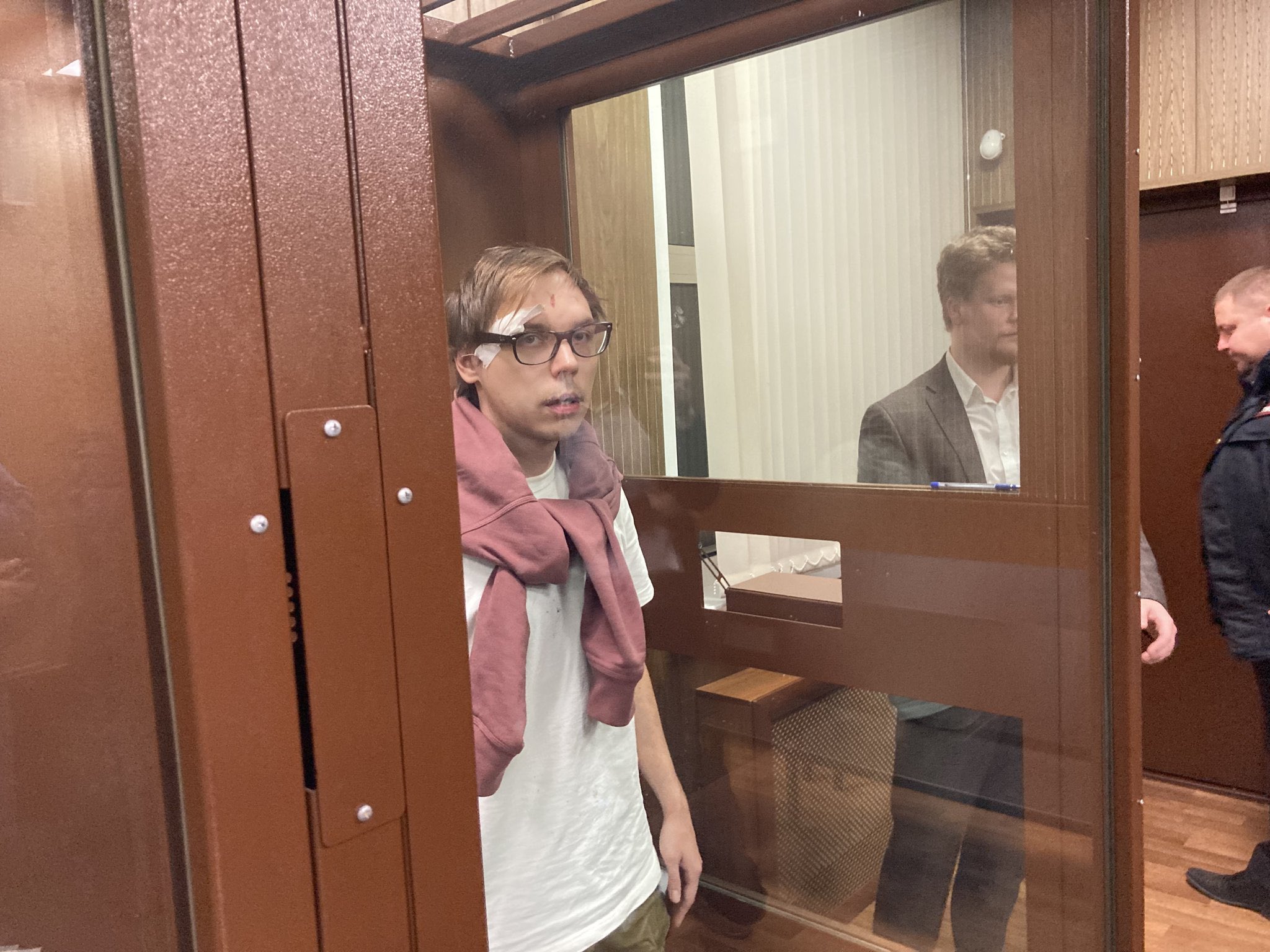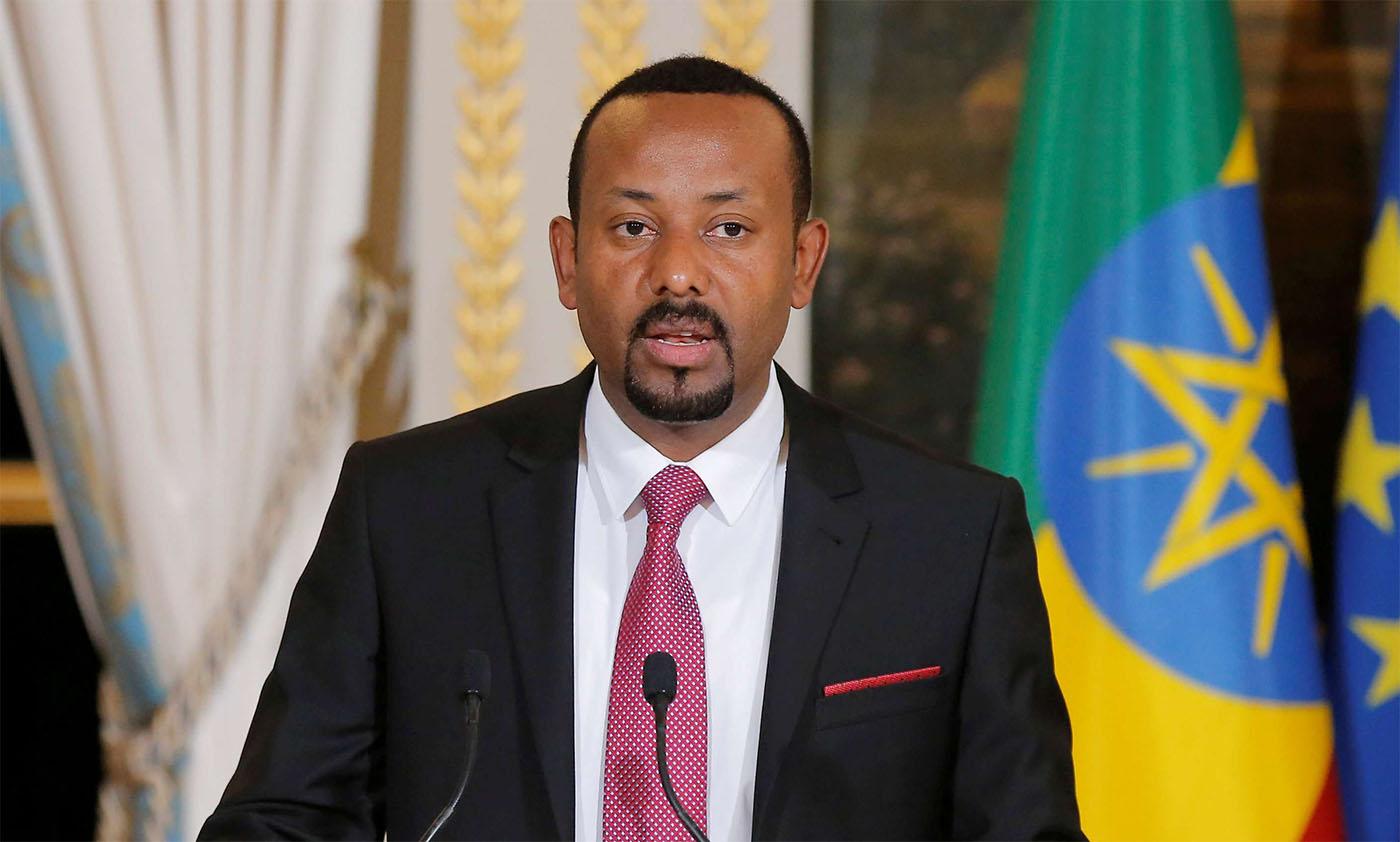
The wife of a Russian poet jailed for seven years for reciting anti-war verses said she was afraid he could be killed in prison after he was sexually assaulted with a dumbbell during his arrest.
Artyom Kamardin was arrested in September 2022 after reciting — on a Moscow square where dissidents have been gathering since the late 1950s — a poem that fiercely criticised Russia’s war against Ukraine.
In December 2023, Kamardin was convicted of inciting hatred and undermining national security. Fellow poet Yegor Shtovba, 23, was sentenced to five and a half years for attending the public reading.
Kamardin, 34, lost his appeal last month and is soon expected to be sent to a penal colony to serve his term.
“I am afraid they will kill him,” his wife Alexandra Popova, 30, who is still based in Russia, told AFP during a visit to Paris. “He is being treated a bit like a Ukrainian. Like a Ukrainian captive.”
In a widely-publicised case, both Kamardin and Popova were beaten and humiliated when security forces stormed their apartment the day after he read his poem, entitled “Kill me, militiaman!”, according to them and rights activists.
The reading took place days after President Vladimir Putin announced a partial military mobilisation, the first such call-up since World War II.
Kamardin’s poem from 2015 is peppered with swear words and takes aim at pro-Russian separatists in eastern Ukraine.
“Kill me, militiaman! You’ve already tasted blood! You’ve seen how brothers-in-arms dig mass graves for the brotherly people,” Kamardin declaimed near the statue of Soviet poet Vladimir Mayakovsky.
– ‘Fascist dictatorship’ –
In a statement from jail, Kamardin said poetry helped him reflect on “my homeland’s transformation into a fascist dictatorship”.
“I was born in a free Russia,” he wrote. “Now this country no longer exists, it was killed and devoured by the monster that calls itself Russia now.”
During the raid Kamardin was sexually abused with a dumbbell handle, according to Popova.
Security force members used their phones to record the assault, she said. “There was a lot of blood,” Popova added. Kamardin was then told to go on his knees to record an apology video.
The men also threatened to gang-rape Popova. “At one point they locked themselves in a room with me and pretended to start taking off their trousers,” she said. The couple were also called Nazis.
Amnesty International has said that the details of “his arrest and torture are horrific even against the abysmal human rights standards of today’s Russia.”
Russian propaganda has mounted a campaign of harassment against the couple. “Sit tight, or they will kill you,” Kamardin was already told in jail, according to his wife.
Putin has used the war, now in its third year, to radically transform Russian society.
Independent media outlets have been shut, top rights groups dismantled, criticism of the war outlawed, and dissidents jailed, muzzled or pushed out of the country. Putin’s top opponent Alexei Navalny, 47, died suddenly in an Arctic colony in February.
Popova, who is part of a six-member collective supporting Russian political prisoners, said the country had changed since the start of the war.
Many people now justify “the killing of other people”.
Even if Moscow’s war against Ukraine comes to an end, repression in Russia might not stop, she said.
“Society has become cruel,” Popova added. “People inform on each other.”
The head of the Kremlin’s Human Rights Council, Valery Fadeyev, said last month there was no repression in Russia, with just “minimal restrictions” against those who he said “are essentially siding” with the West.
– ‘Only chance to save people’ –
Popova urged Western governments to do everything to help free Russian political prisoners.
She praised the release of 16 Russian dissidents and foreign nationals in a prisoner swap on August 1 and said more such exchanges were needed.
“People die in Russian prisons,” she said, calling them “victims of war”.
“These are the people who oppose what is happening now and they pay for their position with their health and lives.”
In July, Pavel Kushnir, a 39-year-old pianist and anti-war activist, died in detention in the city of Birobidzhan near the China–Russia border.
In April, Alexander Demidenko, a 61-year-old volunteer who helped Ukrainian refugees, died in jail in the southern city of Belgorod.
“Artyom has a chance to get out earlier if there are any exchanges of political prisoners,” Popova said.
“The only chance now to save people from Russian prisons is through exchanges.”
While many Kremlin critics have left Russia, Popova said she had no plans to go. She wanted to keep supporting political prisoners, above all her husband. “My heart is bleeding,” she said. “I have to be near him.”






